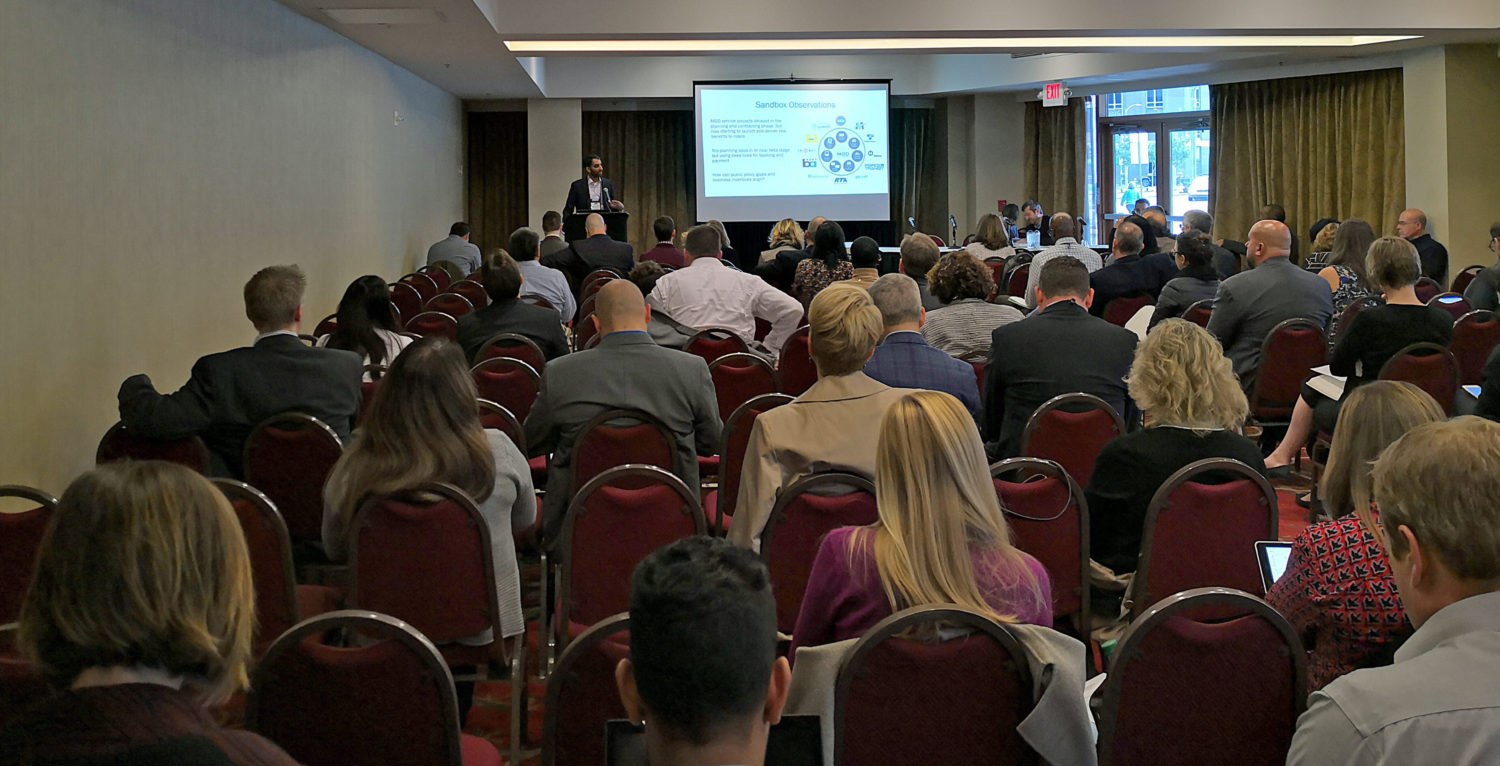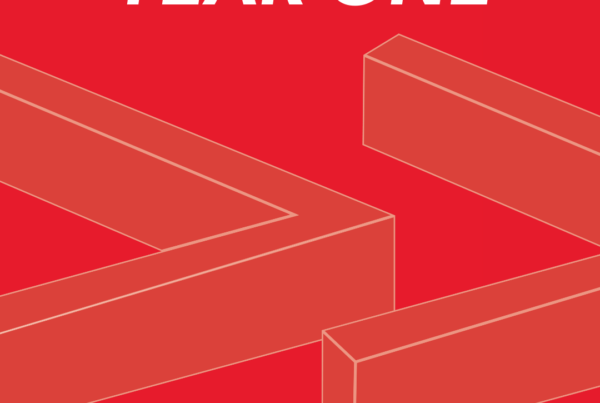Mobility on Demand envisions a multi-modal network of safe, affordable, and reliable transportation options available to all.
The goal of the MOD Sandbox Innovation and Knowledge Accelerator (IKA), which held a two-day workshop and reception October 23-24 at the Rail~Volution conference, was to turn this concept into reality. In panel discussions, breakout sessions, and a reception, practitioners from public and private sectors came together with Sandbox grantees to ask questions, share learnings, and ultimately, drive implementation of mobility solutions that complement and expand the reach of traditional transit.
If you weren’t there in person, here’s what you missed:
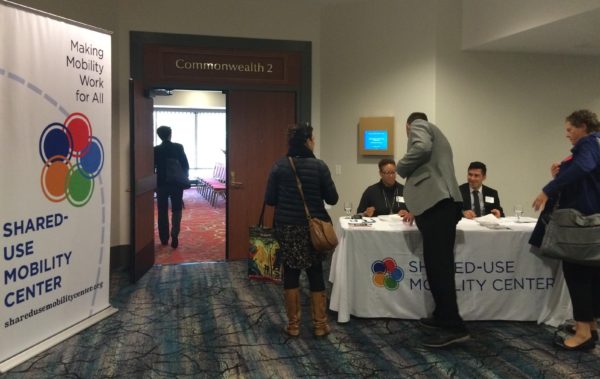
Tuesday, 11.23
Panel Discussion: How is Your MOD Partnership Going?
2:00 – 3:30 PM
A successful Public-Private Partnership (P3) can lead to better first/last mile coverage and a more streamlined network─ if the dynamics are clear from the start. This first panel discussion featured current MOD partnerships discussing what works, what doesn’t, and how to find common ground between public and private sectors.
Highlights:
The point was raised that the value proposition for each partnership must be clear from the start. While the benefits are many, higher capital and transaction costs are a possibility.
Penny Grellier of Pierce Transit shared a learning experience from a partnership between Lyft, Sound Transit, and Pierce College Puyallup, which provided supplementary evening rides from the college after transit services ended. “Ensuring service equity, negotiating data sharing, and getting the word out,” she said, “proved to be a challenge.”
Access the full summary of, “How is Your MOD Partnership Going?”
*
Panel Discussion: Making MOD Happen through Payment Integration
4:00 – 5:30 PM
Multiple mobility options often mean multiple methods of payment. This panel, which featured speakers from RouteMatch, DART, Moovel, Masabi, and Cubic, discussed integrated payment technologies like smartphone apps, trip-planning tools, and payment cards – and their impact on the riders’ experiences.
Highlights: Each speaker emphasized that while fare integration was necessary for rider adoption, trip planning must also be a part of the effort to take friction away from transit trips.
Cubic emphasized that transit agencies must prioritize social equity, ensuring that groups without access to fare integration technology have equal access to transit services and the importance of risk management.
DART, which has used an account-based system with a transit card “wallet” since 2013, said that risk was a necessary part of innovation and that conducting a needs assessment helps to identify possible issues before they occur.
Access the full summary of, “Making MOD Happen through Payment Integration”
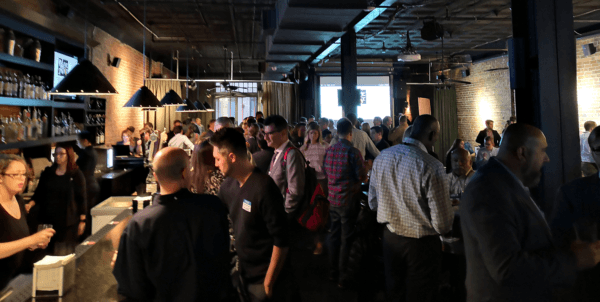
PM Reception sponsored by Free2Move
5:45 – 7:45 PM
Refreshments met refreshingly new trip-planning apps from MOD Sandbox grantees at the MOD reception, held at a martini bar a short walk away. The event attracted many from the public and private sectors as well as Rail~Volution conference attendees including, Bird, Chariot, Ford Mobility, Jeff Wood from The Overhead Wire, ValleyMetro, Washington DOT, and Michigan DOT Mobility Challenge grant winners.
Highlights: The app demos featured different approaches to mobility integration. Notably, TriMet’s open trip planner includes integration of TNCs with transit, a long elusive combination in apps like Google Maps and Transit apps.
*
Wednesday, 11.24
Panel Discussion: The MOD Business Model
8:30 – 11:30 PM
MOD Sandbox helps turn pilot programs into sustainable, scalable mobility solutions. Since this process requires developing new business models, the Wednesday session brought together transportation consultants, private companies, transit agencies, and nonprofit organizations to share their perspectives.
Highlights:
Michelle Poyourow of Jarrett Walker & Assoc. talked about the correlation between the trip cost and service capacity and gave tips on boosting microtransit ridership (in turn lowering the cost per rider).
Eleanor Joseph of Via showed how the company promotes sustainability by offering four different services: Transportation as a Service, Software as a Service, Simulation and Direct-to-Consumer Transit.
Diogo Lousa of the Mass. Bay Transportation Authority (MBTA) spoke of MBTA’s The Ride on-demand, shared paratransit pilot, offering that MOD programs need time, good partnerships and strong data analysis on an ongoing basis.
Access the full summary of, “The MOD Business Model”
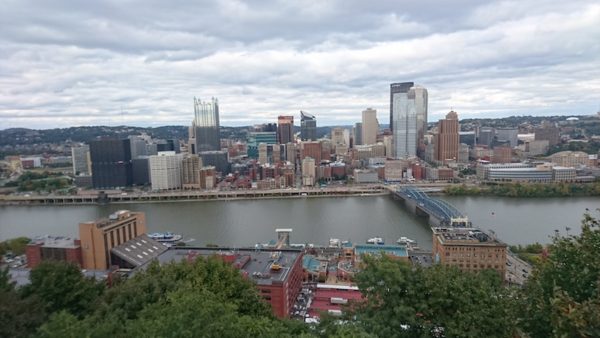
Pittsburgh, PA; Site of the Rail~Volution Conference
ADDITIONAL HIGHLIGHTS
From the Workshop Opening: Murat Omay of the FTA brought up the importance of evaluating performance quality of MOD projects from the traveler’s perspective. To this end, the FTA’s Office of Research, Demonstration, and Innovation is working on tools that can help agencies channel this information.
From the Rail~Volution Closing Plenary: Speaker Robin Rather reframed “disruptive1 innovation” through the lens of an average person commuting on limited means – universal mobility cannot occur unless equity is made a priority at the same time technology is embraced.
Next on the agenda for MOD:
The MOD Online Learning Center will be launching in early 2019 and we’re holding a MOD On-Ramp Workshop at the 2019 National Shared Mobility Summit on March 5-7 in Chicago, IL.

